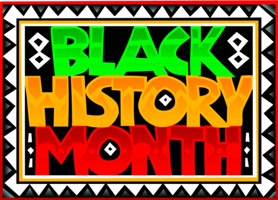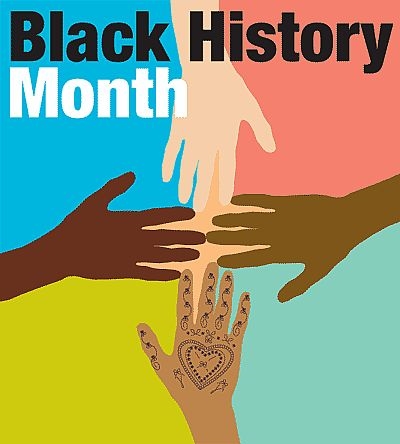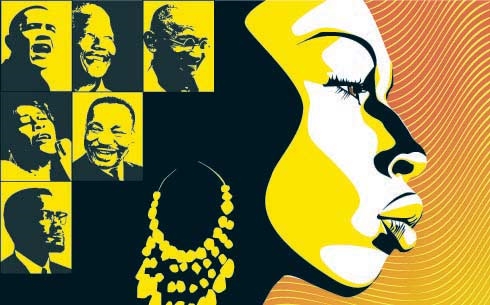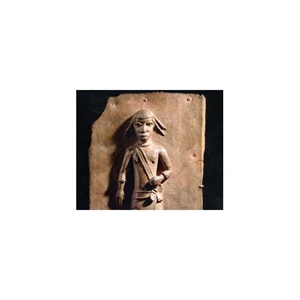National Black History Month on February, 2025: Black History Month?
February, 2025 is National Black History Month 2025. National black history month 2014 Black History Month Change Makers, Editors, Writers

It has been all over the media all month. You must have been hibernating. Here is why it is in Feb.
Americans have recognized black history annually since 1926, first as "Negro History Week" and later as "Black History Month." What you might not know is that black history had barely begun to be studied-or even documented-when the tradition originated. Although blacks have been in America at least as far back as colonial times, it was not until the 20th century that they gained a respectable presence in the history books.
Blacks Absent from History Books
We owe the celebration of Black History Month, and more importantly, the study of black history, to Dr. Carter G. Woodson. Born to parents who were former slaves, he spent his childhood working in the Kentucky coal mines and enrolled in high school at age twenty. He graduated within two years and later went on to earn a Ph.D. from Harvard. The scholar was disturbed to find in his studies that history books largely ignored the black American population-and when blacks did figure into the picture, it was generally in ways that reflected the inferior social position they were assigned at the time.
Established Journal of Negro History
Woodson, always one to act on his ambitions, decided to take on the challenge of writing black Americans into the nation's history. He established the Association for the Study of Negro Life and History (now called the Association for the Study of Afro-American Life and History) in 1915, and a year later founded the widely respected Journal of Negro History. In 1926, he launched Negro History Week as an initiative to bring national attention to the contributions of black people throughout American history.
Woodson chose the second week of February for Negro History Week because it marks the birthdays of two men who greatly influenced the black American population, Frederick Douglass and Abraham Lincoln.

black history months?
The story of blacks and slavery on the North American continent is a convoluted and warped tale that seems to be based more on myth than fact. For instance:
Africans were not simply kidnapped, "dragged off" and then forced into slavery. The truth be told, there's (even to this day) a tradition of warring inwhich the winner takes the loser captive and either puts them to death Or enslaves them. I'm not REALLY sure that slavery is better than death, but the curator of the slavery museum on the Ivory Coast paints it as a picture of almost having done them a favor -- they get to remain alive.
The first slaves were not blacks, taken from Africa -- the region of what is now called Senigal, they were whites from the ghettos and debtors prisons of London. They were called "Indentured Servents" because they were given contracts that were supposed to expire usually within a five year period. Most did not live past three years. Those that did usually found themselves being retained for some supposed infraction of the agreement and were never released.
African slaves actually had laws of protection passed. If a handler or owner was thought to be abusive and was tried and found guilty, he faced either imprisonment or death by hanging. AND, a good and mindful owner would never simply divide up a family -- a happy slave is far more productive than is an angry slave.
Please do not misunderstand me, slavery be it black, white or purple is worng. But so many people have absolutely no idea of the facts.
Interesting facts that might sway your opinion of the Democratic National Party:
Lincoln was a Republican -- was so hated by the democrats that he actually had to sneak into Washington, D.C. for his inauguration. The democrats were pro slavery -- even at the cost of disolving these United States.
The founding members of the "social club" known as the Ku Klux Klan were all democrats.
In 1957, republican President Eisenhower called upon congress for a "Civil Rights" bill. Two senators (democrats JFK and LBJ) both fought to try and stop it. When they realized they could not, they shifted tactics and so watered down the bill, they were able to render it ineffective. This act drew the wrath of the president who called the two on the carpet for having challenged his authority. Eisenhower was also responsible for the desegregation of the military and the public schools. For the latter, he was forced to call out the National Guard.
In 1964, democrat president Johnson -- the same who'd fought the bill in '57, called for a "Civil Rights" bill. The democrats of congress filabustered against it. It passed thanx to the republicans.
In the presidential primaries leading up to the '72 elections, democrat president hopeful George Wallace's campaign promise was "No More Desegregation!"
Rosa Parks was not the first, but rather the last to make a civil disobedience protest -- may she rest in peace.
When did "they" finally make peace? That's all a matter of perspective. If you were to ask me, I'd say that there will never be equality as long as there are government programs like Welfare that by design intentionally enslave the masses to a life of subsistance on government hand-outs.
Did you know that the original intent of Planned Parenthood was to have a form of government control over the population of blacks? Seems pretty diabolical if you were to ask me. Thank you Margaret Sanger!
Equality begins with education. It's been made "free" and available. The question now becomes how do you get the parents to support it to the degree required to bring "those children" into the fold of success?

who invented black history month?
What we now call "B lack History Month" was originated in 1926 by Dr. Carter Godwin Woodson. In 1926, it was called "N egro History Week."
Carter Woodson attended college where he earned a B.A. degree in European history and a Ph.D. in history. As a new graduate, he managed to earn a living as a high school teacher; and later as a professor of history at Howard University. He had a strong desire to document N egro history. He co-founded and financed the "Association for the Study of N egro Life and History" in 1915.
In 1926, Dr. Woodson was able to offer the Association's name to sponsor the week. He chose the second week in February because it marked the birthdays of Abraham Lincoln and Frederick Douglass. Through Woodson’s promotion of the celebration in the "Journal of N egro History" and the creation and distribution of kits for children, "N egro History Week" gained in popularity.
In 1976, "N egro History Week" expanded into "B lack History Month." The month is also sometimes referred to as African-American Heritage Month. It is recognized officially in several nations including Canada and the UK, and unofficially in others.
In the U.S., it is recognized officially. In 1975, President Ford issued a Message on the Observance of "B lack History Week" urging all Americans to "recognize the important contribution made to our nation's life and culture by B lack citizens."
In 1976, President Ford issued the first Message on the "Observance of B lack History Month." In subsequent years, Presidents Ford, Carter and Reagan continued to issue Messages honoring "African-American History Month."
In 1986, Congress passed Public Law 99-244 which designated February 1986 as "National B lack (Afro-American) History Month.” This law noted that February 1, 1986 would “mark the beginning of the sixtieth annual public and private salute to Black History.” The law further called upon to President to issue a proclamation calling on the people of the United States to observe February 1986 as "B lack History Month" with the appropriate ceremonies and activities. President Reagan issued Presidential Proclamation 5443 which proclaimed that “the foremost purpose of "B lack History Month" is to make all Americans aware of this struggle for freedom and equal opportunity.” This proclamation stated further that this month was a time “to celebrate the many achievements of African Americans in every field from science and the arts to politics and religion."
In January 1996, President Clinton issued Presidential Proclamation 6863 for “National African-American History Month." The proclamation emphasized the theme for that year, the achievements of black women from Sojourner Truth to Mary McLeod Bethune and Toni Morrison. In February 1996, the Senate passed Senate Resolution 229 commemorating "B lack History Month."
Since 1996, the Presidents have issued annual proclamations for "National African-American History Month."
To honor Dr. Woodson, the national theme for 2008 was “Carter G. Woodson and the Origins of Multiculturalism.”
For more information, please see:
[Edit: m3aidan, as always, I try to be here with information, not always useless, for you "to stick in your head.":]











